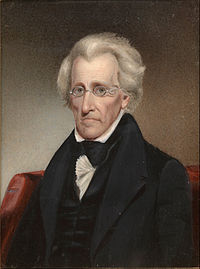Introduction
Andrew Jackson, born on March 15, 1767, became the seventh president of the United States. As the Man of the People, he was a lean man who stood six feet and an inch with red hair and piercing blue eyes.
This article will describe how his red hair says a lot about him.
Passionate
Andrew was known to be a devoted, loving husband to his wife, Rachel. Rachel was in an unhappy marriage with her previous husband, Captain Lewis Robards. Many controversies sparked against Rachel, such as an adulteress; however, Andrew Jackson is always willing to defend her and even enraged and turned out to become violent.
Sensitive and Ill-Tempered
Anchored from being passionate, Andrew Jackson was also unstable and gained him infamy. His sensitivity caused him to have a volatile temper. He often flew into a rage over petty things such as misunderstanding and if he feels insulted or criticized.
There are numerous reports about the duels Andrew Jackson fought. He does not compromise with words; instead, he challenges the Man he was against a contest. Andrew Jackson claimed that his body rattled like a bag of marbles because of the led inside him. There were four significant duels he had.
First was against Waightstill Avery, who was a lawyer and also an American Revolution veteran. After Avery being an experienced lawyer, outmatched Jackson in a civil suit. Andrew Jackson challenged him in a duel. Avery did not take it seriously; however, Jackson insisted that he accepted the challenge. Both of them showed up in the agreed location but did not pursue the duel; hence, they fired a single shot in the air. They became fast friends after the incident.
The second recorded incident was another duel against his political rival, Tennessee Governor, John Sevier. They clashed because both of them ran for the post of Commander of Militia. Andrew Jackson won, which hurt John Sevier’s reputation. In a heated debate on the courthouse in Knoxville, John Sevier accused Andrew Jackson’s wife an adulteress. Jackson was furious and fired shot without getting anyone hurt. The following day, he challenged John Sevier in a duel, and he accepted. They ended their fight without any bloodshed.
The third was against an expert marksman and lawyer, Charles Dickinson. Because of a misunderstanding in a horse race, Charles Dickinson published few defamatory articles about Jackson as a coward. Andrew Jackson let Dickinson fire the first shot. Charles Dickinson aimed for his chest. He broke his ribs but did not show any signs of pain. In return, he stood up and carefully pointed his pistol to Dickinson. A fatal shot ended his life.
After sustaining broken ribs, the bullet fired by Dickinson was too close to his heart and would be fatal when removed. He carried the round for the rest of his life.
Lastly, on September 4, 1813, Andrew Jackson indulged in a bloody frontier brawl and nearly cost his left arm. A feud against Thomas Benton and Jesse Benton ignited the duel. After the fight, his blood soaked two mattresses in the nearby inn. A slug from the Benton Brothers shattered his shoulder, and doctors declared the need to amputated it. Andrew Jackson refused to have his arms amputated.
He earned four nicknames
Dubbed as “Old Hickory,” Andrew Jackson exhibits determination and strength during the War of 1812. He was an inexperienced military leader but was able to win numerous military campaigns. He earned the respect of his men because he exhibits camaraderie, lends his horse to the sick or injured, encourages his men when needed, and even discipline them.
Because of Andrew Jackson’s military success, his victory at New Orleans made him a war hero. He was hailed as the “Hero of New Orleans” after successfully leading his troops to defeat the British forces despite being outnumbered, which paved his way to the White House.
In his inaugural reception in the White House, a crowd of people attended; due to an overcrowded event, some visitors lunged toward fragile furniture and broke many exquisite dishes. Unable to manage the group, there is speculation that Andrew Jackson jumped out of the window to leave the reception. He earned his nickname “King Mob” because some accounts are indicating that the crowd was a mob.
During his presidency, he earned the nickname “Sharp Knife” from the Cherokee people for his unwillingness to negotiate. He implemented the Native Removal Act, which forced the Native Americans to migrate westward. Many claimed that approximately 4,000 aboriginal immigrants died due to starvation, thirst, disease, and heat exhaustion.
Strong-willed
His upbringing greatly influenced him to live his life as a common man with a strong personality and stands to his opinion on issues and situations. As a military leader, he was able to win against the British because of his tenacity and active involvement in the action. He strived to defend the union from seceding states over tariff issues and even started the Nullification crisis.
Andrew Jackson’s dominant personality played a role in how he led the United States of America. He is larger than life and continues to intrigue historians until today. Others may admire him; the rest might despise him. In the course of his life and the legacy he left, he harnesses the characteristics of an ordinary individual. His personality, passion, and even prejudices made him the Man of the People.
US Presidents | ||

